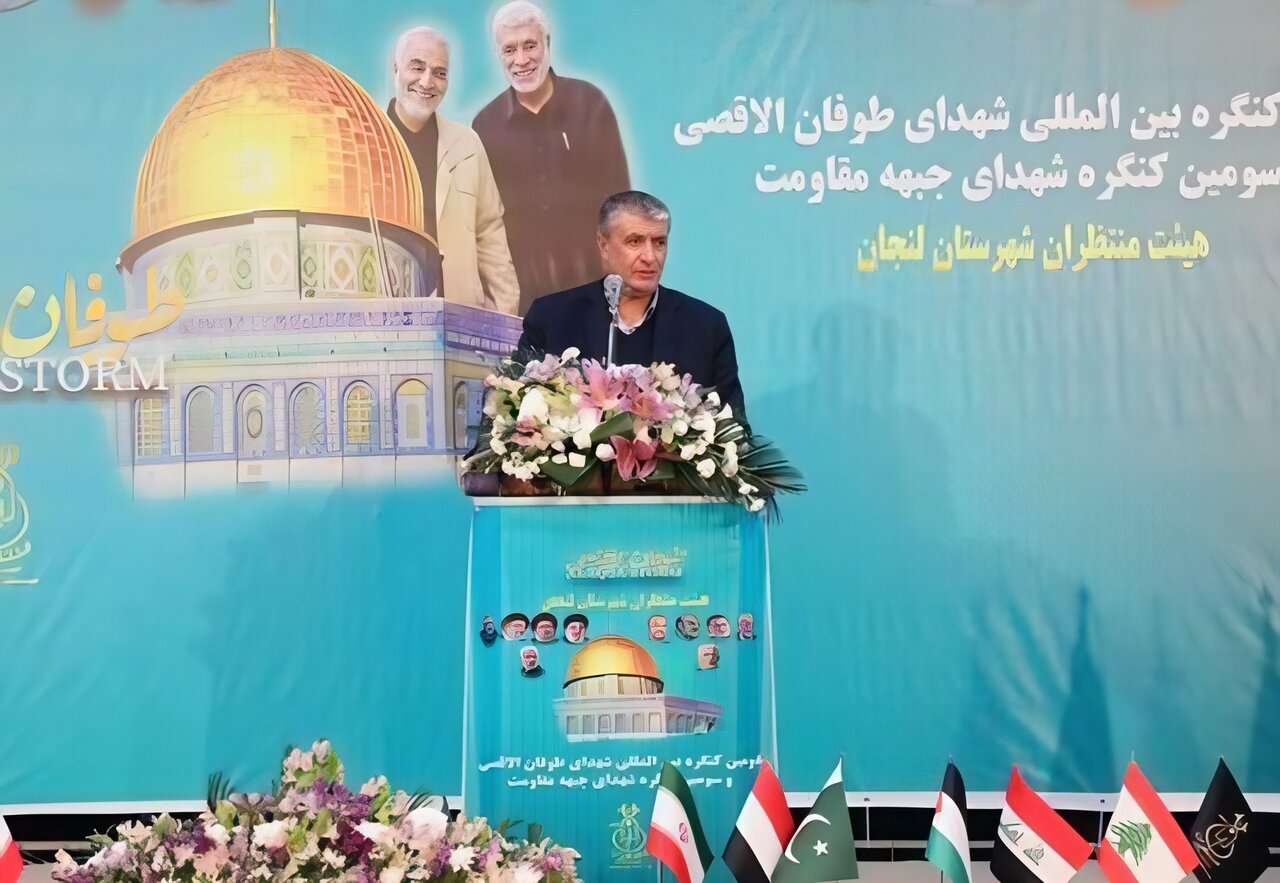Eslami: Iran's nuclear progress is unstoppable

TEHRAN – In a speech delivered in the country's central province of Isfahan on Monday, Mohammad Eslami, the Head of the Atomic Energy Organization of Iran (AEOI), asserted that the country's advancements in nuclear technology “will never be curtailed.”
“Iran's progress in the nuclear sector is impervious to interference from hegemonic powers. Our nation's commitment to achieving significant advancements is unwavering,” the nuclear chief announced before condemning certain countries for attempts to limit developing nations' access to advanced technologies, especially in the nuclear sector.
The nuclear chief highlighted that the restriction of access to advanced technologies also serves to stifle the economic growth of developing nations. Despite these obstacles, he insisted that Iran's nuclear program would continue to advance through determination and perseverance.
Highlighting the importance of modern sciences and technologies, Eslami pointed to nuclear energy, aerospace, information technology, nanotechnology, and biotechnology as vital sources of power.
"A nation without advanced science and technology will undoubtedly struggle," he declared.
Eslami stressed that these technologies are crucial for maintaining national independence and progress.
He warned that Iran's armed forces “could face unexpected challenges if they are not equipped with advanced sciences and technologies.”
Among the notable achievements of Iran's nuclear industry, Eslami highlighted the production of heavy water.
Used across various sectors, including pharmaceuticals, Iran's heavy water is recognized as one of the highest-quality compounds globally.
Iran, he pointed out, exports heavy water internationally, with applications including newborn metabolic disease screening in public health.
Addressing historical contexts, Eslami noted that since the Islamic Revolution's victory in 1979, Iran has been subject to sanctions due to its steadfast commitment to independence and freedom.
Additionally, Eslami condemned the Israeli regime for diverting the United Nations from its core mission of upholding human rights and justice.
He questioned the international organizations' positions on the regime's actions and the reliability of the UN and its Security Council.
In reference to the recent vote at the UN General Assembly, Eslami pointed out that most countries endorsed the Palestinian right to self-governance. Nevertheless, a small group of nations, including the United States, voted against it.
Despite the majority vote, these few countries wield decisive influence in international affairs, often disregarding the will of the majority, Eslami concluded.
Leave a Comment